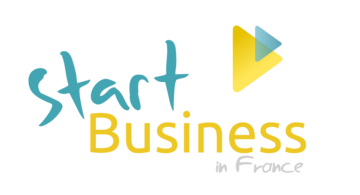You may be considering moving to France and starting a new business, but how to you get started? I recently wrote this article for Mum Abroad France, covering 13 interesting questions ranging from the first steps to take, business structures, taxes, brand name protection and health cover.
Compared to other countries in Europe, how does France compare vis-à-vis starting your own business?
France is a very regulated country, with many activities requiring a specific qualification or sufficient experience, such as hairdresser, beautician, nurse, etc. You also need to set up a legal business before you can start trading. As such you cannot test and trial your idea for a few months before launching your business.
Before embarking on the paperwork, what advice would you give to a foreigner who is considering setting up their own business in France?
Start by working on your business plan, then a financial plan including your initial investment and fixed charges for a year. Assess how many sales you need to make in order to break even. Does it seem achievable. Speak to a business advisor about your project to have an external advice and confirm the business type most appropriate for your business activity.
What kind of business entities are there in France?
There are two major types of business entities available for small entrepreneurs. First of all you have the self employed with entreprise individuelle (micro entreprise, auto-entrepreneur) and EIRL, which is an entreprise individuelle with limited liability. Secondly you have limited companies such as EURL (one shareholder) and SARL (minimum of 2 shareholders).
Once someone has decided that they would like to go ahead with establishing their business, what are the next steps?
Based on your activity type you will need to get in touch with Centre de Formalités des Entreprises (CFE), either with Chambre de Commerce for trading activities, Chambre des Métiers for crafts and manual activities or URSSAF for profession libérales (translators, consultants, programmers, etc.).
What are the main pitfalls when setting up your own business?
I have written an article recently on this subject. Success or failure for new businesses is often linked to one of the 5 following reasons: 1) Lack of, or poor market research, 2) Stock related issues, 3) Lack of investments and under funding, 4) Marketing plan with no, or an unrealistic budget, 5) Lack of support
Once you have registered & established your business, what will you have to pay and what are you then entitled to?
You will pay some social charges called “appel de cotisation” based on the business type and social regime you have chosen. For instance auto-entrepreneurs will pay a fixed percentage of their turnover towards social charges, currently varying from 12% for trade, to 18.3% for professions libérales and 21.3% for manual services. Other businesses such as EURL, SARL or entreprise individuelle under réel simplifié will pay a différent rate based on their net profit. These social charges entitle you to a health cover, pension and training entitlement.
How complicated is the French tax system and do you recommend using an accountant to help?
Auto-entrepreneurs do not usually require an accountant as the accountancy rules are fairly simple. For any other regime, I would strongly recommend to use an accountant to help you stay on track and comply with the French accountancy rules.
As well as obligatory contributions, what other contributions are there?
Apart from social charges, you will pay a couple of taxed called Contribution Fonciere des Entreprises (CFE) and Contribition à la Formation Professionnelle (CFP) which entitles you to professionnal training. As per any French resident, you will also pay some income tax (impots) on your overall household income.
How easy is it to gain access to grants once you have established your business?
It is easier to get access to business loans before you launch your activity than after. Your bank manager will judge your business based on your market research, your financial plan and your ability to reimburse your loan. If your activity is already ongoing, a bank manager will request a copy of your first year profit and loss account called bilan, in order to assess the situation.
How do you ensure your business name is not already in use?
You can check the availability on INPI’s brand database called Recherche de marques. You can also register your brandname with them for France.
Have you seen a growth in the number of entrepreneurs over the last few years?
The number of entrepreneurs has significantly increased with the launch of the auto-entrepreneur scheme in January 2009. Over 320,000 auto-entrepreneurs were created in 2009 and 358,588 in 2010. This pay-as-you-go system has enabled many people to test and trial their business without taking any risk. The accountancy rules have also been kept simple.
Are more women setting up their own business? For expats, which sectors are most popular and why?
I don’t have any stats on the repartition between men and women or for expats. Expat women start their business in a wide range of activity, from consultant, to trade (online or on market stalls), tourism (gites and chambres d’hotes) to services. It always depends on your past experience and the local potential.
What advice would you give to someone thinking about embarking on a new life in France and intent on setting up a business there?
Take some time to find several business ideas that are in connection with your past experience and/or passion. Do your market research and start writing a business plan to structure your though. Once you have decided on a location in France where you wish to live, plan a few trip over and complete your market research. Is your vision still accurate. Go and meet some business advisers at the Chambre de Commerce, Chambre de Metiers or BGE to get more local feedback. Also work on a financial plan on your own or with the help of an accountant. Here are 5 more tips to get ready.
